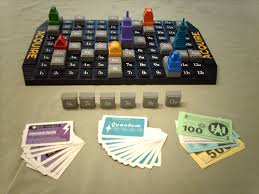记忆方法
ac增加;quire需要,需求
中文词源
acquire 获得
前缀ac-同ad-, 去,往。词根quir, 追求,同question, 追问,问题。
英语词源
- acquire
-
acquire: [15] The original source of acquire, Latin acquīrere, meant literally ‘get something extra’. It was formed from the verb quaerere ‘try to get or obtain’ (from which English gets query, the derivatives enquire and require, and, via the past participial stem, quest and question) plus the prefix ad-, conveying the idea of being additional. English borrowed the word via Old French acquerre, and it was originally spelled acquere, but around 1600 the spelling was changed to acquire, supposedly to bring it more into conformity with its Latin source.
=> query, quest, question - acquire (v.)
- mid-15c., acqueren, from Old French aquerre "acquire, gain, earn, procure," from Vulgar Latin *acquaerere, corresponding to Latin acquirere "to seek in addition to" (see acquisition). Reborrowed in current form from Latin c. 1600. Related: Acquired; acquiring.
权威例句
- 1. Perhaps we did acquire a somewhat fuddy-duddy image in the later years.
- 可能在后来的几年里我们真的让人感到有些古板。
- 2. Here is your opportunity to acquire a luxurious one bedroom home.
- 现在正是购买一套豪华一居室住房的机会。
- 3. He was the mastermind behind the plan to acquire the explosives.
- 他就是密谋获取炸药的主谋。
- 4. Many children acquire a phobic horror of dogs.
- 很多儿童都怕狗。
- 5. Students examined how children acquire language.
- 学生们仔细研究儿童如何习得语言。

